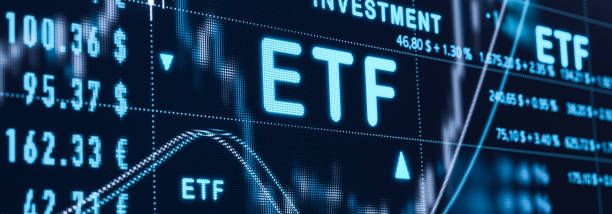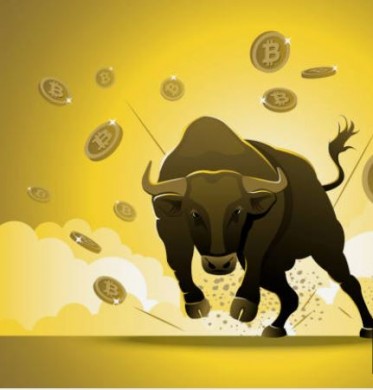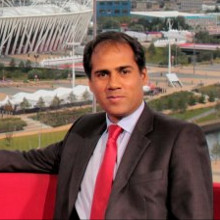In previous articles we discussed how investment and gambling are alike yet different. We established that while gambling is focused mainly on chance, luck and probability investment is more about calculated decisions and market research. In this article we shall look at another side of investment, one that may end up shattering the foundation that we have built up so far.

At this point you must have a clear idea about gambling and investment. Well, it is about time that we introduced our readers to a really high stake gambling known as the world of finance and trading. Now before we proceed, let us make a clear distinction here.
So far whatever we have discussed about investment has been from the perspective of the investors, small time, amateur and even professional investors but this is just one side of the coin. The other side of the same coin has a dark reality that we are going to delve into in this article.
Investors invest into assets that they deem profitable but who creates those assets and who determines how profitable they are? These are complex questions that need to be understood if we really want to understand the nature and reality of the world of finance and how closely it is linked with professional gambling.
Banking and Finance sector
The banking and finance sector has put up a nice façade of a sector that runs the economy, that carries the burden of the whole economy. There are all sorts of regulations and laws that help create this aura of transparency and legality that makes people think that nothing wrong can happen behind closed doors of board meetings and conferences. Well this is simply a façade and it only takes a few examples to rip this façade apart.
Without wasting more time let us delve into our case study.
Deutsche Bank scandal
The senate inquiry report submitted to the Congress revealed the reasons for the financial crisis of 2008 and this report exposed how top banks like the Deutsche bank got involved into fraudulent and illegal trading activities that eventually resulted in the crash. The report identified the former head of asset backed securities trading working for the Deutsche bank known as Gregg Lippmann, who confessed that the management of the bank knew that the bank was going against the laws and regulations but they kept quiet.
Lippmann further stated to the inquiry that between 2004 and 2008 traders sold junk bonds and securities by marketing them as A grade assets to unsuspecting investors. This means that investors who had done their market research were fooled by the traders of Deutsche bank to buy high risk bonds and securities, thinking that these were low risk investment grade securities.
Now, suppose that you are an investor and you have done your research and you go to a well known bank to buy securities and the traders at the bank sell you junk securities. Unless you are very shrewd you’d believe the bank and this is what happened with thousands of investors who went to Deutsche bank. They were fooled into buying low grade securities but this didn’t end here.
The internal memo`s cited in the inquiry report show that the management was actively a part of this fraudulent trading activity. The traders regularly called these junk bonds as “pigs” and “crap” and advised each other not to invest in them while pitching these securities as investment grade securities to the investors and to top it all off, the management was betting against the market.
Let me repeat that again, the traders who were insiders to the banking system knew that the market was propped up on risky loans and fraudulently sold investments that could crash at any moment and therefore these traders actively betted against the market. The market expectation is made up by the combined sentiments and expectations of the investors, who have invested their hard earned money into assets they think are good. In 2008 similarly the investors thought that the bonds and securities they had invested in were A grade and so they were expecting the market to go higher but at the very same time the bankers were betting for the market to collapse, because they knew the reality!
If this isn`t systematic and professional gambling, then what else is? For the investors this wasn’t gambling as they had no idea what they were getting into but for the bankers this was all a one great biased gamble and they had the odds in their favor as they knew the result of the contingent event.
This wasn’t the only fraud Deutsche bank was involved in, investigations revealed that the bank was also involved in circumventing United States sanctions to deal with countries like Syria and Libya that were under sanctions and the bank also violated multiple money laundering laws and banking regulations that resulted in heavy fines by the courts in the United States. This pushed the Deutsche bank on the verge of a financial collapse in 2019.
The point here is that the financial industry is more deeply entrenched into financial gambling than it cares to admit. An average investor may think that they are investing on fundamentals of the markets but behind the scenes, the movers and shakers who control the whole banking and financial industry, run it like a gambling operation where the odds are permanently in their favor.
Think about it, the 2008 financial crash wiped out trillions of dollars from the markets, many retirement account owners lost up to 30% of their retirement savings and had to push back their retirement to save up again. The March 2020 financial market crash similarly wiped out trillions from the markets. The question that nobody asks is, where are the trillions of wiped out dollars going to?
Do they simply disappear from the economy? No. When they say that trillions have been wiped out, this means that the investments have lost their value, when the shares lose their value investors try to liquidate their investment and leave the market and this results in a credit crunch.
When people lose their jobs and fail to pay their mortgage and lease on time, their property goes into foreclosure and while the people, the common person loses their life savings and their property. On the other side of the equation the assets of banking and lending institutions keep increasing. When the common person loses a home, that becomes an asset for the lender. When investors sell off their investments at throw away rates, they are bought by institutions and professional investors who then later sell them at high rates.
So now when you look at the whole banking and finance operation from the other side of the window, it appears as a systematic gambling Bong88 operation where the house always has the advantage. The financial sector is in reality , professional gambling in action.


 Hot Features
Hot Features










